According to information from the Department, poor quality and fake foods are consumed through many different channels, from social networks, traditional markets to industrial parks and schools with the advantage of low prices.
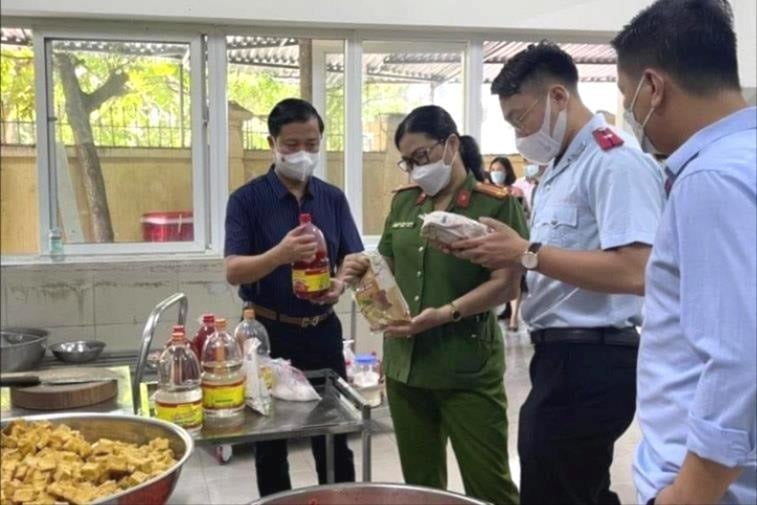 |
| Authorities inspect a school kitchen in the area. Photo: Thu Trang |
Accordingly, cases of confiscation of fake food of unknown origin have been continuously discovered, such as the confiscation of more than 71 thousand liters of cooking oil, nearly 40 tons of MSG, 22 tons of seasoning powder, 9 tons of fake broth powder in Phu Tho, or the confiscation of dozens of tons of food such as frozen chicken, sausages, and fake Chinese sausages in Hanoi .
In addition, the chemical soaking of bean sprouts in Nghe An also caused a stir in public opinion, raising concerns about the safety of domestic food.
These foods not only pose a risk of acute poisoning such as digestive disorders, nausea, and diarrhea, but also cause long-term and serious health consequences.
Long-term exposure to food contaminated with toxic chemicals or pathogenic microorganisms can lead to chronic diseases such as cancer, liver failure, kidney failure, or reproductive system effects.
The Food Safety Department affirmed that ensuring food safety in collective kitchens not only affects the health of workers in industrial parks but also directly impacts students - the future generation of the country.
When food safety is lost, the consequences will not only stop at the number of people getting sick but also cause great economic damage, affect the learning and production process, increase the burden on the health system and create instability in society.
To address this situation and ensure food safety in communal kitchens, the Food Safety Department has issued four important principles that relevant units must strictly implement. These are specific guidelines to help communal kitchens maintain food quality and protect public health.
Raw materials for food processing must have a clear origin. The Food Safety Department recommends that raw materials should only be imported from reputable suppliers with legal business licenses and food safety certificates. In addition, raw materials for processing must always ensure quality: must be fresh, not crushed, and have no signs of damage or mold.
For prepackaged ingredients, food additives, flavors and spices, they must be clearly labeled, in accordance with regulations and within their expiration dates. Collective kitchens must also sign contracts with suppliers who commit to quality assurance and regular inspections, and record and trace the source in case of incidents.
Food preparation and processing procedures must strictly comply with food hygiene and safety regulations. Processing areas must always be clean and clearly divided between raw and cooked foods to avoid the risk of cross-contamination.
Food handlers must wash their hands frequently, wear protective clothing, hats and masks throughout the work process. In addition, processing tools must be cleaned before and after use.
Food storage facilities must comply with food safety regulations, ensuring that food is stored at the right temperature, avoiding cross-contamination, and protecting food from insects and pests. Implementing the FIFO (First In, First Out) rule is also an important factor to ensure that food is not stored for too long and still maintains the best quality.
To ensure food quality, kitchens need to keep food samples according to regulations to serve the traceability work when necessary. At the same time, build an internal food safety inspection team to conduct periodic and unscheduled inspections.
In addition, this agency also encourages kitchens to organize food safety training courses for all kitchen staff, helping to raise awareness and responsibility in food processing.
According to the representative of the Food Safety Department, food safety is a responsibility, an ethics, and the protection of public health. Every employee and every kitchen manager needs to be clearly aware that they should not trade the trust and safety of hundreds and thousands of people for immediate benefits.
Ensuring food safety not only helps protect health but also maintains trust and stability in society, especially in collective environments such as industrial zones and schools.
Only by strictly implementing food safety regulations can we create a healthy living and working environment, protect the health of the community and prevent unfortunate incidents from happening in the future.
Source: https://baodautu.vn/thuc-pham-kem-chat-luong-de-doa-bep-an-tap-the-va-khuyen-cao-cua-bo-y-te-d274426.html



![[Photo] General Secretary To Lam attends the conference to review 10 years of implementing Directive No. 05 of the Politburo and evaluate the results of implementing Regulation No. 09 of the Central Public Security Party Committee.](https://vphoto.vietnam.vn/thumb/1200x675/vietnam/resource/IMAGE/2025/5/19/2f44458c655a4403acd7929dbbfa5039)
![[Photo] President Luong Cuong presents the 40-year Party membership badge to Chief of the Office of the President Le Khanh Hai](https://vphoto.vietnam.vn/thumb/1200x675/vietnam/resource/IMAGE/2025/5/19/a22bc55dd7bf4a2ab7e3958d32282c15)
![[Photo] Close-up of Tang Long Bridge, Thu Duc City after repairing rutting](https://vphoto.vietnam.vn/thumb/1200x675/vietnam/resource/IMAGE/2025/5/19/086736d9d11f43198f5bd8d78df9bd41)
![[Photo] Panorama of the Opening Ceremony of the 43rd Nhan Dan Newspaper National Table Tennis Championship](https://vphoto.vietnam.vn/thumb/1200x675/vietnam/resource/IMAGE/2025/5/19/5e22950340b941309280448198bcf1d9)














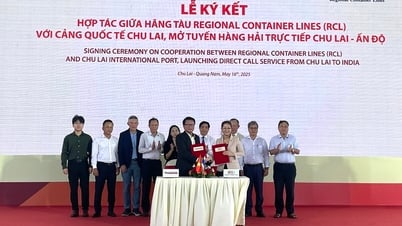




![[Photo] Prime Minister Pham Minh Chinh inspects the progress of the National Exhibition and Fair Center project](https://vphoto.vietnam.vn/thumb/1200x675/vietnam/resource/IMAGE/2025/5/19/35189ac8807140d897ad2b7d2583fbae)














































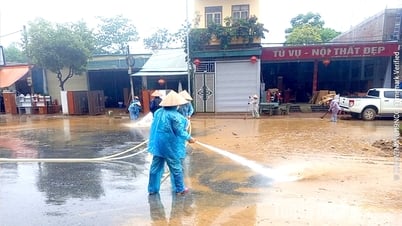

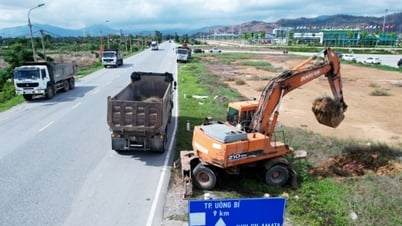

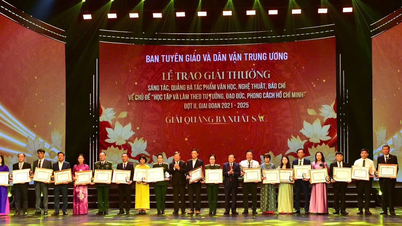







![[VIDEO] - Enhancing the value of Quang Nam OCOP products through trade connections](https://vphoto.vietnam.vn/thumb/402x226/vietnam/resource/IMAGE/2025/5/17/5be5b5fff1f14914986fad159097a677)



Comment (0)